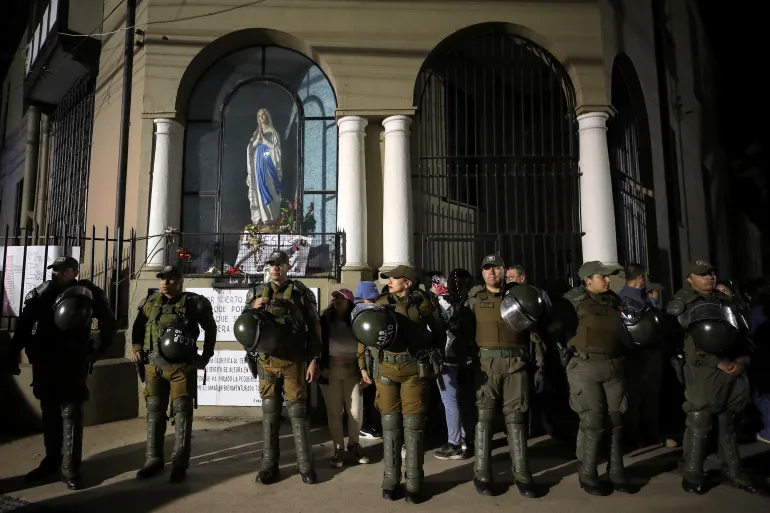Chile’s government has declared a state of emergency following a massive power outage that left millions of people without electricity, including the capital city, Santiago. The blackout, which is the largest the country has experienced in years, was caused by a failure in a high-voltage transmission line in northern Chile. Interior Minister Carolina Toha confirmed the cause of the outage and ruled out any possibility of sabotage. The nationwide disruption affected 14 out of Chile’s 16 regions, leaving homes, businesses, and essential services in darkness.
In a late-night televised address, Chilean President Gabriel Boric expressed strong dissatisfaction with private energy companies, holding them responsible for the chaos. He emphasized that it is unacceptable for private firms to disrupt the daily lives of millions and insisted that the government will take steps to hold those responsible accountable. The president’s remarks reflect growing concerns over the reliability of the country’s power infrastructure and the influence of private corporations in managing essential public services.
To maintain public order, the government imposed a curfew from 10 p.m. to 6 a.m. (01:00 to 09:00 GMT), stretching from the northern port city of Arica to the southern Los Lagos region. In addition to the curfew, the Ministry of the Interior announced the deployment of armed forces across the country. The measure aims to prevent looting, ensure public safety, and assist in restoring essential services in the affected areas.
By early Wednesday, authorities confirmed that 90 percent of the country’s electrical demand had been restored. Chile’s power operator reported significant progress, with most regions regaining access to electricity. Ernesto Huber, executive director of Chile’s National Electricity Coordinator, explained that several power stations, primarily hydroelectric facilities, had been activated to stabilize the power grid and meet the nation’s energy needs.
The power outage caused significant disruption to daily life across the country. In Santiago, streetlights went dark, and emergency sirens echoed through the city. The capital’s metro system, which transports millions of commuters daily, was forced to shut down, leaving passengers stranded and causing widespread confusion. The city’s transport minister, Juan Carlos Munoz, urged residents to stay at home, as only 27 percent of traffic lights in the city were functioning. This created dangerous conditions on the roads and added to the sense of chaos as public transportation came to a halt.
The blackout also affected financial transactions and basic services. ATMs stopped working, leaving many people unable to withdraw cash. Residents expressed frustration over the sudden breakdown of daily life. A Santiago resident, Jose Luis Orlandini, described the situation, saying, “There’s nothing. There’s no cash. No money. Nothing.” His remarks capture the widespread anxiety and inconvenience caused by the power failure.
At Santiago’s Arturo Merino Benitez International Airport, operations continued under emergency power. Airport officials confirmed that flight schedules remained unaffected, although terminals relied on backup systems to keep essential services running. Despite the disruption in the city, the airport’s ability to maintain operations provided a small sense of stability amid the ongoing crisis.
The power failure also had significant economic consequences. Large copper mines in northern Chile were forced to stop operations, sending shockwaves through global metal markets. Chile is the world’s largest copper producer, and any interruption to its mining activities can have far-reaching effects on global supply chains. The temporary shutdown of these mines raises concerns about the potential impact on international copper prices and Chile’s economy, which relies heavily on copper exports.
As the government continues to investigate the cause of the transmission line failure, questions remain about the vulnerability of Chile’s power infrastructure. The incident has sparked renewed debate about the role of private companies in managing essential services and whether stricter government oversight is needed to prevent future blackouts. For now, the focus remains on restoring full electrical service across the nation and addressing the immediate needs of those affected.



